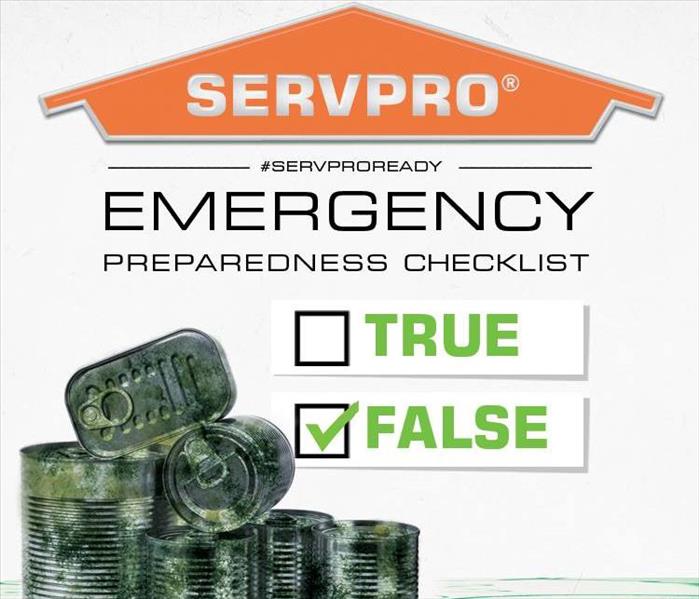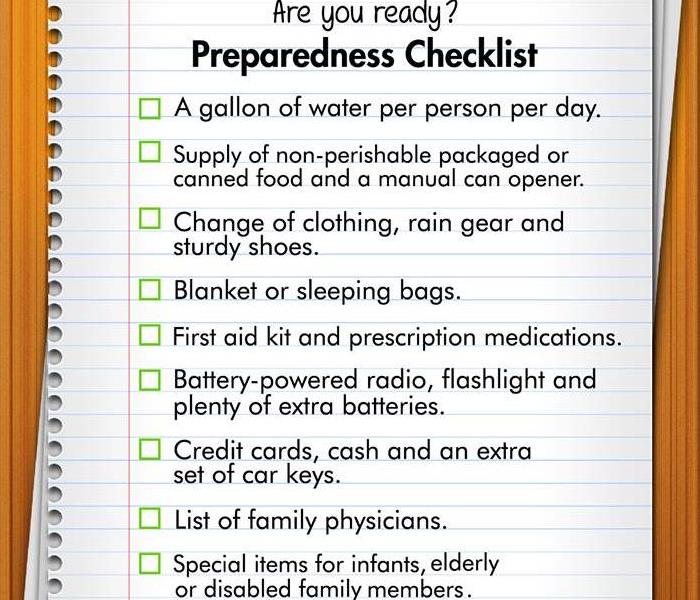Are you Prepeared For A Storm?
You should throw out all food, beverages and medicines that have been exposed to flood waters- even canned or sealed foods. When in doubt, throw it out!
Emergency checklists can ensure you are ready with the items you need should disaster strike.
A well-equipped disaster supply kit should include, but is not
limited to, the following:
- Water- a large enough supply to provide each person with 1 gallon daily for drinking and sanitation.
- Food- enough to last 3-7 days. Food needs to be non-perishable or canned food. You will also want to include a non-electric can opener, paper plates and plastic utensils.
- Bedding including sheets, blankets and pillows.
- Clothing- remember it may be warm, however, you may be working and cleaning and may prefer pants or long sleeves to protect your skin. You will also need sturdy, closed-toe, non-slip shoes if available.
- First aid kit including antiseptics or sanitizers and bandages, over-the-counter and prescription medications.
- Extra flashlights and batteries. Oil lanterns also provide a good source of light, if available.
- Toiletries including toilet paper and hygiene items. Hand sanitizers are also good to have on hand.
- Battery-operated radio with extra batteries so you can listen to weather service announcements.
- Cash- you will want some cash and small bills on hand as banks may not be open.
- Emergency phone numbers and contact information including insurance agent and family contacts.
- Tools, tarps, plastic sheets, trash bags, duct tape, etc. to help make minor repairs.
- Important documents should be kept in a waterproof bag or plastic sealed container and should include insurance, medical and family records, birth certificates, social security cards, bank account information and a complete home inventory analysis.
- Gas- fill your car’s tank ahead of time if time permits. You may also want to fill plastic gasoline-approved containers with gas to store.
- Pet care items including food, leash and a carrier or cage.
Don’t wait until it is too late; prepare now to help protect your family in an emergency or disaster situation.





 24/7 Emergency Service
24/7 Emergency Service

